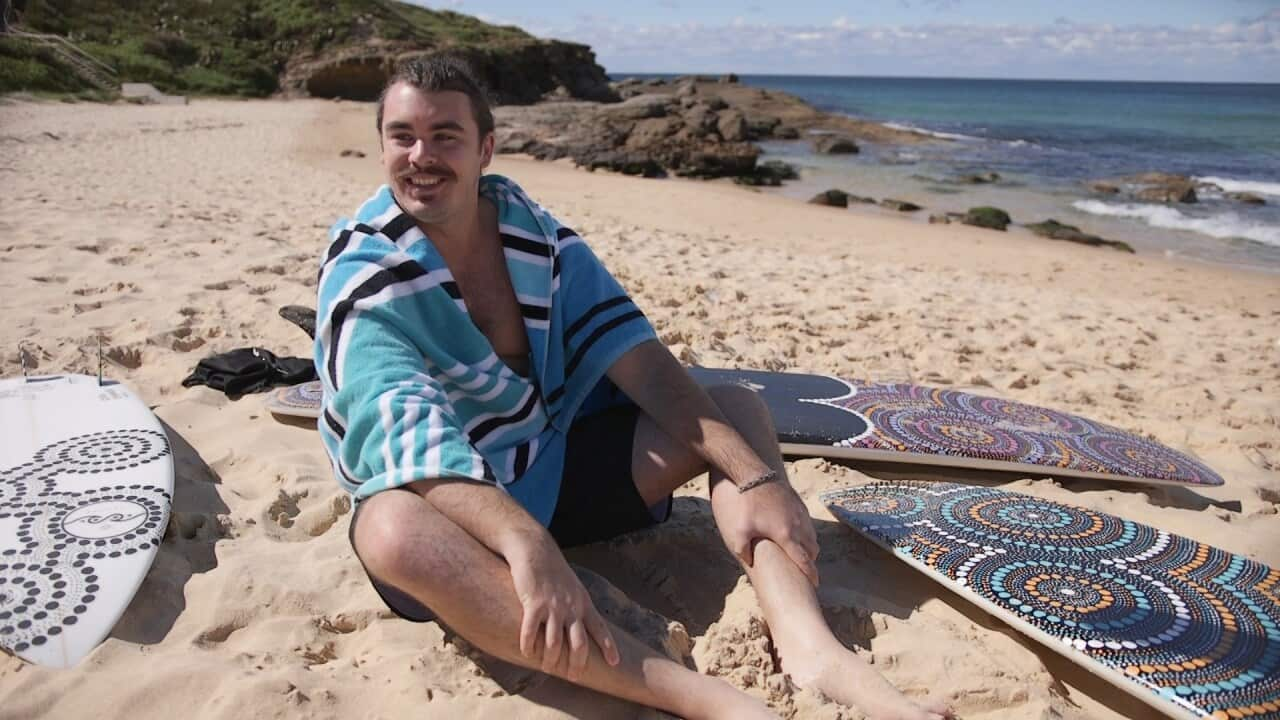On the surface, it's an unlikely transition, but for former model and songstress of The Sapphires fame, Lois Peeler, activism and teaching are also literally in her blood.
Her own life-of-contrasts began in northern Victoria in the 1940's, sometimes with stints on Cummeragunga Mission, home to renowned Indigenous leaders like Uncle William Cooper and Sir Doug Nicholls.
Ms Peeler says the role models from whom she took direction were strong, influential women from within her own family.
“An aunt of mine, Hillis Briggs, actually has a school operating on the banks of the Murray River after the people walked off in protest, so there was a lot of that sort of leadership that came out of the Cumeragunga Aboriginal Reserve,” she said.

Cynthia, Thelma and Lois at Cumeragunga Source: Supplied
In the 1960's she became Australia's first Aboriginal model, then joined the now famous band The Sapphires touring war-raved Vietnam, as imortalised in the 2012 film.
Ms Peeler considers the production “mostly accurate – with some artistic licence” and concedes it gives her some “street-cred” with the student body she presides over at the all-Aboriginal girl’s school Worowa College on the outskirts of Melbourne.
Ms Peeler says her unorthodox backstory engages the teenage students at Worowa.
“What they like to hear about is what it was like living on the reserve, coming from that reserve how I overcome whatever those challenges were at that time, and of course they like the glamour part of it as well,” she said. Catherine O'Sullivan is Vice Chancellor at Bond University, and has participated in a program for Indigenous leaders, known as 'Yarning Up', which won the Queensland Reconciliation Award and featured a presentation from Lois Peeler.
Catherine O'Sullivan is Vice Chancellor at Bond University, and has participated in a program for Indigenous leaders, known as 'Yarning Up', which won the Queensland Reconciliation Award and featured a presentation from Lois Peeler.

Lois Peeler was a model before joining The Sapphires, and later becoming a teacher. Source: Supplied
Ms O'Sullivan says Ms Peeler's words mesmerised the audience.
“It was quite extraordinary, she was like a rock-star up there so it was another added layer I guess to provide that added motivation and incentive to young people in such an isolated community,” Ms O’Sullivan said.
And Ms Peeler says that's precisely the message she tries to impart on the students at Worowa College who come to the school from a range of remote communities across Australia.
“I tell them about having pride in who they are in their Aboriginal identity - having belief in themselves, having aspirations and aiming for excellence in whatever they do,” she said.
Ms Peeler is a fierce advocate for the Worowa system which encourages holistic learning which extends far beyond the class-based study.
“It's about academic learning, it's about social and emotional wellbeing, and it's about culture, so we bring those three things together to form a whole,” she said. Ever the activist, Ms Peeler says she can’t help but compare the years-long campaign preceding the 1967 referendum with the current climate around constitutional recognition.
Ever the activist, Ms Peeler says she can’t help but compare the years-long campaign preceding the 1967 referendum with the current climate around constitutional recognition.

Lois Peeler says her school students are often intrigued by her glamorous past as a model and singer. Source: Supplied
“It's a similar movement the way it's not going to happen overnight - it's going to be a long process," she said.
"We want to make sure it's the right changes and there's a lot of consultation going on about that,” she said.
The Worowa education model is now set to be replicated across Australia and Ms Peeler says she couldn't be more proud of former and current students.
“They're also holding on to their Aboriginality, which is very important, so you know they're proud of who they are - they're bringing about change in the community in both the Aboriginal community and the broader community,” she said.












